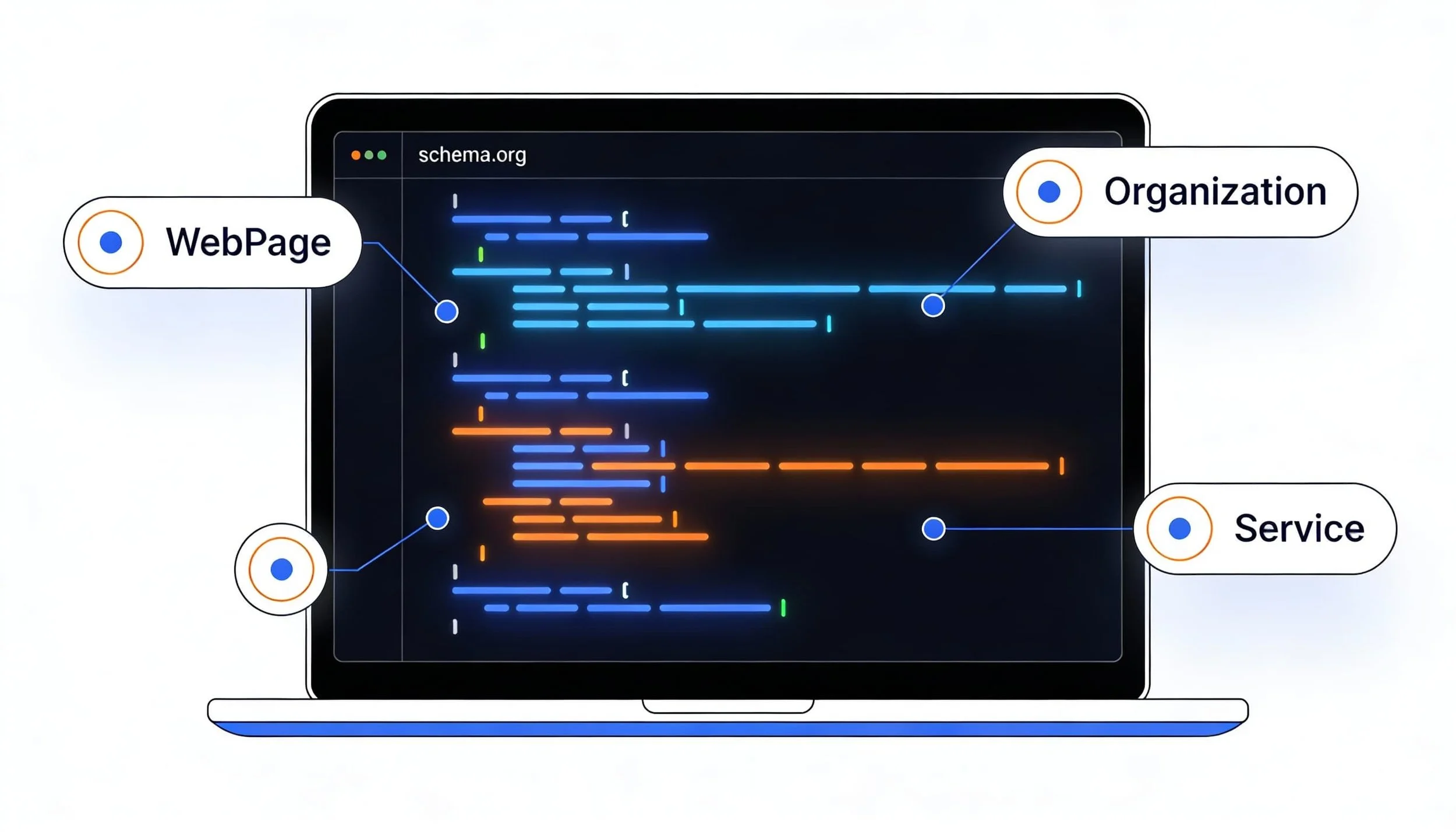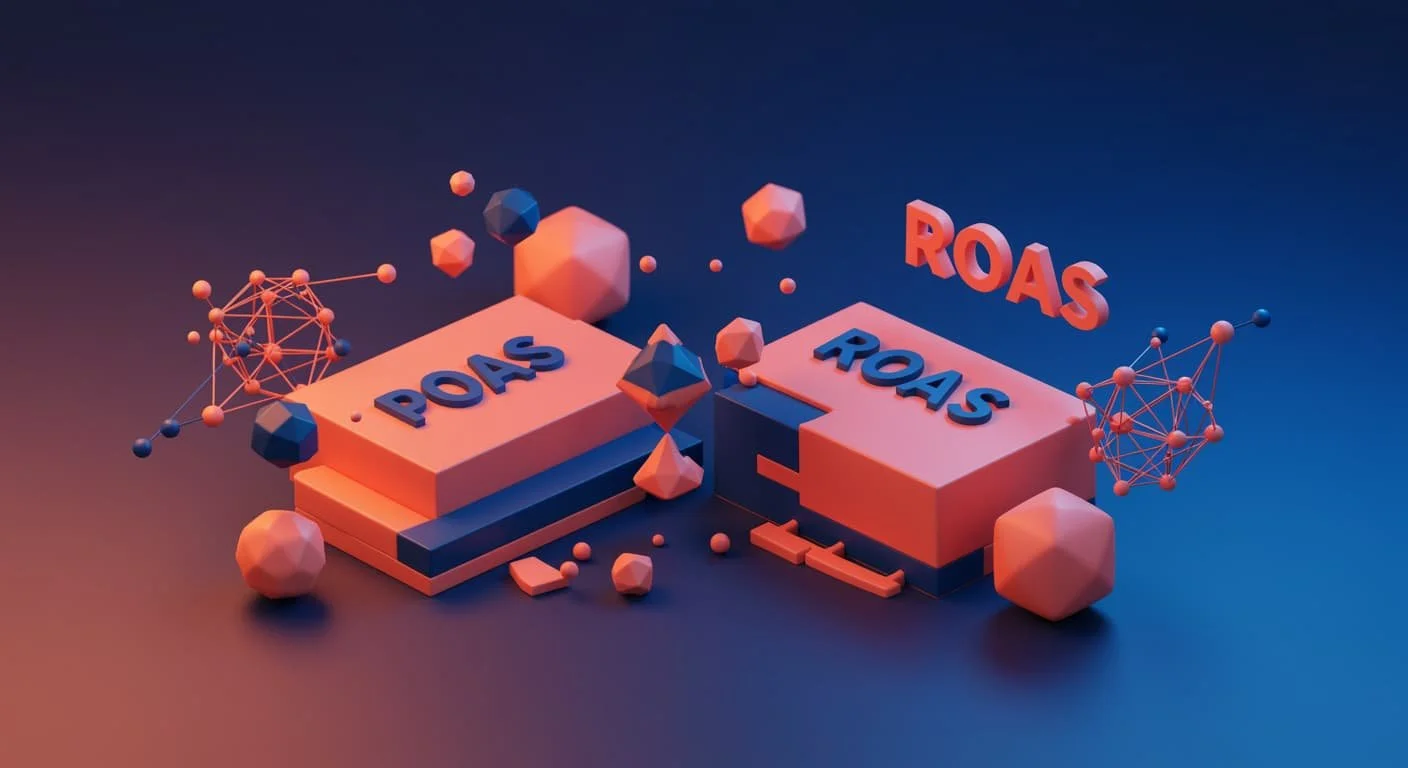GEO Marketing: The Natural Evolution of SEO
- Zero-click reality: 58.5% of Google searches end without a click, AI Overviews in 47% of queries
- Paradigm shift: From rankings to citations - GEO optimizes for AI-generated answers
- Authority crucial: 61% of AI signals come from editorial sources, external validation outweighs self-content
- Conversational focus: 71% prefer voice search, optimization for natural language becomes essential
- Future strategy: "Search everywhere optimization" - visibility on all platforms where the target audience is active
The digital marketing landscape is undergoing a fundamental transformation. After more than two decades where search engine optimization revolved around optimizing for traditional search engines, a new era is dawning. Generative Engine Optimization (GEO) is not just another AI trend – it is the future of online visibility and digital discoverability.
Why 2026 is the Turning Point
The numbers don't lie. According to recent research by SparkToro, 58.5% of all Google searches now end without a single click to a website. AI Overviews currently appear in almost 47% of all search queries, while platforms like ChatGPT already record nearly 5 billion visits monthly.
This has a direct impact on traditional SEO strategies and conversion optimization. Zero-click searches are becoming increasingly dominant, as we previously discussed in our article on the importance of zero-click searches.
"Google is no longer always the first place people go for answers. They're increasingly turning to social media, YouTube, Amazon, and ChatGPT," states Neil Patel, founder of NP Digital. This shift means that companies must fundamentally rethink their strategy.
“Google is no longer always the first place people go for answers - they are increasingly turning to social media, YouTube, Amazon, and ChatGPT”
From Rankings to Answers: The Core of the Transformation
Traditional SEO: The Era of Blue Links
Classic search engine optimization revolved around a simple formula: identifying keywords, optimizing content, building backlinks, and hoping for a high Google ranking. Success was measured by positions in Google's organic search results. The traditional model of "ten blue links" dominated the online search landscape for years.
GEO: The New Reality of Generated Answers
Generative Engine Optimization completely changes this paradigm. Instead of directing users to websites, AI search engines like ChatGPT, Perplexity, and Google AI Overviews generate direct answers based on multiple sources. "From how keywords are targeted to how content is created and ranked, AI is changing the game's rules," according to research by Lumenalta.
“From how keywords are targeted to how content is created and ranked: AI is changing the rules of the game.”
These AI-driven search engines use machine learning and natural language processing to generate contextual answers that often answer user questions without them visiting websites.
The Impact on Different Business Types
Informational Websites: From Traffic to Citations
Businesses that traditionally relied on informational content are seeing drastic changes. Research shows that websites with guides or tutorials are experiencing a drop in organic traffic of 15% to as much as 64%. The edtech company Chegg even saw its business model collapse when AI summaries drastically reduced their traffic.
This shift has direct consequences for e-commerce SEO and mobile optimization. Companies must adapt their strategy to remain visible in AI-generated answers.
Local Businesses: From Maps to Knowledge Panels
For local SMEs, the dynamic is also changing. Local packs in Google now directly display business information, ratings, and contact details, meaning users click through to business websites less often. This makes local SEO more crucial than ever.
Why GEO is More Than a New SEO Technique
Fundamental Differences in Approach
GEO requires a completely different mindset:
SEO focus: Ranking in search results GEO focus: Appearing in AI-generated answers
SEO success: Clicks to your website GEO success: Being cited as a source
SEO content: Optimized for keywords GEO content: Structured for AI comprehension
The Role of Authority and Trust
Research by Nine Peaks Media shows that 61% of the signals determining AI's understanding of brand reputation come from editorial media sources. This means that external validation now carries more weight than self-published content.
The New Rules for 2026
1. From Keywords to Entities
AI systems understand concepts through entities, not isolated keywords. According to Neil Patel's research, companies should structure their content with "clear, concise answers that AI can reference".
“AI is completely changing the rules of SEO - from how keywords are targeted to how content is created and ranked”
This requires a different approach to keyword research and structured data implementation, as we extensively discussed in our guide on combining AI and SEO.
2. The Rise of Conversational Search
With 71% of consumers preferring voice search over text, natural language becomes crucial. Voice search optimization is no longer an option, but a necessity for modern businesses.
3. Multimodal Optimization
Platforms like Google Lens are making visual searches increasingly popular, requiring companies to optimize their images and videos for AI recognition. This aligns with our expertise in AI content creation.
The Psychology Behind the Shift
User Behavior in Transition
We are now in the "Early Majority" phase of AI adoption, with ChatGPT having already gained household recognition. Users are experimenting with new AI tools and conversational search, but are still reliant on traditional search engines for the majority of their information queries.
This hybrid search behavior creates new opportunities for companies that adapt their digital marketing strategy to both traditional and AI-driven search engines.
Trust in AI Content
Despite risks of AI hallucinations, 73% of users trust AI-generated content. This paradox demonstrates why responsible AI implementation with human oversight is essential.
Practical Implications for SMEs
Traffic vs. Visibility
The focus is shifting from website visits to brand awareness and online authority. As BJ Cook of 85SIXTY states: "Strategies need to adapt to the growing influence of AI-generated search overviews". Companies must develop new KPIs that go beyond traditional click-through metrics.
“Generative Engine Optimization is not a technical upgrade - it's a fundamental shift in how information is delivered and consumed”
This means that SEO professionals must adapt their approach from traffic generation to brand awareness and thought leadership in their sector.
Adapting Content Strategies
Neil Patel's experiments at NP Digital show that human-written content still performs better than AI-generated content. The art lies in combining human creativity with AI efficiency.
This is precisely where our AI audit for SMEs comes into play. We help businesses understand how AI can enhance their content without losing the human touch.
The future of search
Fragmented Search Landscapes
Patel predicts that we are moving towards "search everywhere optimization," where brands must optimize their organic presence on every platform. This means that SEO needs to expand to social media, YouTube, Amazon, and AI chatbots.
For SMEs, this means an expansion from traditional performance marketing to LinkedIn marketing and other platforms.
Technological Developments
Google's Search Generative Experience (SGE) combines traditional search results with AI-generated answers, representing a significant shift towards a more user-friendly and interactive search engine.
This has a direct impact on Google Ads optimization and online advertising strategies.
What This Means for Your Business
Immediate Actions for 2026
Audit your current AI visibility - Test if your brand appears in ChatGPT, Perplexity, and Google AI Overviews. Consider a professional AI audit to evaluate your current status.
Restructure your content - Make information easily processable for AI systems through better prompt engineering and content optimization.
Invest in authority - Ensure external mentions in reliable sources, as described in our guide on digital marketing expertise.
Develop multimodal content - Combine text, video, and audio for maximum visibility, supported by AI automation.
Long-Term Strategy
As experts from The VC Corner state: "AI isn't just finding answers anymore. It's understanding context, catching errors, and filtering out low-quality content." This means that quality and authenticity are becoming more important than ever.
For e-commerce businesses, this is particularly relevant. Our expertise in Shopify optimization and conversion optimization helps businesses make this transition successfully.
The Role of Human Expertise
Why AI Cannot Replace SEO
Generative AI can improve SEO, but not replace it. "Think of it as your personal assistant that helps out with repetitive tasks," according to MarketingProfs. The combination of AI efficiency with human strategy and creativity remains the winning formula.
"AI isn't here to ruin SEO altogether; it can actually enhance it. Think of it as your personal assistant that helps out with repetitive tasks like generating local schema or identifying keyword clusters." Danny Shepherd, Intero Digital
Finding Balance
Mike Barkemeyer from Lumenalta warns: "make sure you don't lose your brand's unique voice in the process." The goal is to leverage AI's analytical power while preserving your brand's personality.
Conclusion: Evolution, Not Revolution
The transition from SEO to GEO is not an abrupt break, but a natural evolution. As Cariad Marketing states: "GEO isn't just a technical upgrade—it's a fundamental shift in how information is delivered and consumed online".
Companies that embrace this shift now are positioning themselves for success in an AI-driven future. It's not about abandoning traditional SEO, but about extending it to new platforms and technologies.
Neil Patel summarizes it perfectly: "In 2026, it's less about search engine optimization and more about search everywhere optimization". The future belongs to companies that optimize their visibility for both humans and machines, across all platforms where their target audience is active.
At ClickForest, we help SMEs navigate this transformation. From traditional SEO services to cutting-edge AI solutions – we ensure your brand remains visible in tomorrow's search results. Discover how our online marketing expertise can help your business grow in the AI era.

🚀 More leads, higher conversion, better ROI
This article provided you with insights. Now it's time for action. Whether you want to build a profitable webshop, generate more revenue from performance marketing or SEO, or grow with AI marketing – we provide concrete support to help you move forward.
💬 Discuss your challenge directly with Frederiek: Schedule a free strategy call or send us a message
📧 Prefer to email? Send your question to frederiek@clickforest.com or call +32 473 84 66 27
Strategy without action remains theory. Let's take your next step together.
Frequently Asked Questions about the evolution from SEO to GEO
-
SEO (Search Engine Optimization) focuses on optimizing content for traditional search engines like Google. GEO (Generative Engine Optimization) focuses on optimizing for AI-driven answers and generative search engines like ChatGPT, Perplexity, and Google AI Overviews.
-
No, GEO does not replace SEO but complements it. Traditional SEO remains important for visibility in Google's organic results, while GEO ensures presence in AI-generated answers.
-
GEO success is measured by citations in AI answers, brand awareness on AI platforms, and the quality of visitors arriving via AI references. Traditional metrics such as traffic and rankings remain relevant but are no longer the sole measure.
-
Informational websites, blogs, news sites, and educational platforms experience the greatest impact because AI systems often summarize their content without referrals. Local businesses also see changes due to AI-driven local search results.
-
Start by testing your current AI visibility by asking questions to ChatGPT, Perplexity, and Google AI Overviews. Then, restructure your content for AI comprehension and focus on building external authority.
-
Structured data (schema markup) helps AI systems better understand and process your content. FAQ schema, Organization markup, and Product structured data increase the likelihood of citations in AI answers.
-
Voice search drives the demand for conversational content and natural language. AI systems are better at understanding spoken queries, which means content must be optimized for how people truly speak.
-
Yes, small businesses often have an advantage in GEO because AI systems look for specific expertise and niche knowledge. Local authority and specialized knowledge can outweigh domain authority.
-
Backlinks remain important, but the emphasis shifts to brand mentions and citations in reliable sources. AI systems increasingly assess authority based on external validation rather than traditional link metrics.
-
AI technologies evolve rapidly, so GEO strategies should be evaluated every 3-6 months. Keep an eye on new AI platforms and regularly test your visibility across different AI systems.
Sources and references
Research and Statistics
SEO.com: “Inside Zero-Click Searches (And Their SEO Impact)” – https://www.seo.com/blog/zero-click-searches/
AI Overviews and GEO development
Search Engine Journal: “Study: Google AI Overviews Appear in 47% of Search Results” – https://www.searchenginejournal.com/study-google-ai-overviews-appear-in-47-of-search-results/535096/
Botify & DemandSphere: “AI Overviews Report 2024” – https://lp.botify.com/hubfs/White%20paper/2024/Botify%20x%20DemandSphere%20-%20AI%20Overviews%20Report.pdf
Impact of AI on SEO and brand authority
Nine Peaks Media: “What’s the impact of AI on SEO in 2025?” – https://ninepeaks.io/whats-the-impact-of-ai-on-seo-in-2025
Rand Fishkin / SparkToro interview and analyses on zero-click – summarized in “Google Zero Click Study Now At 58.5% In 2024” – https://www.seroundtable.com/google-zero-click-study-37660.html
Reporterzy.info: “Zero-click search 2025. The even bigger end of the open web?” – https://reporterzy.info/en/5069,zero-click-search-2025











